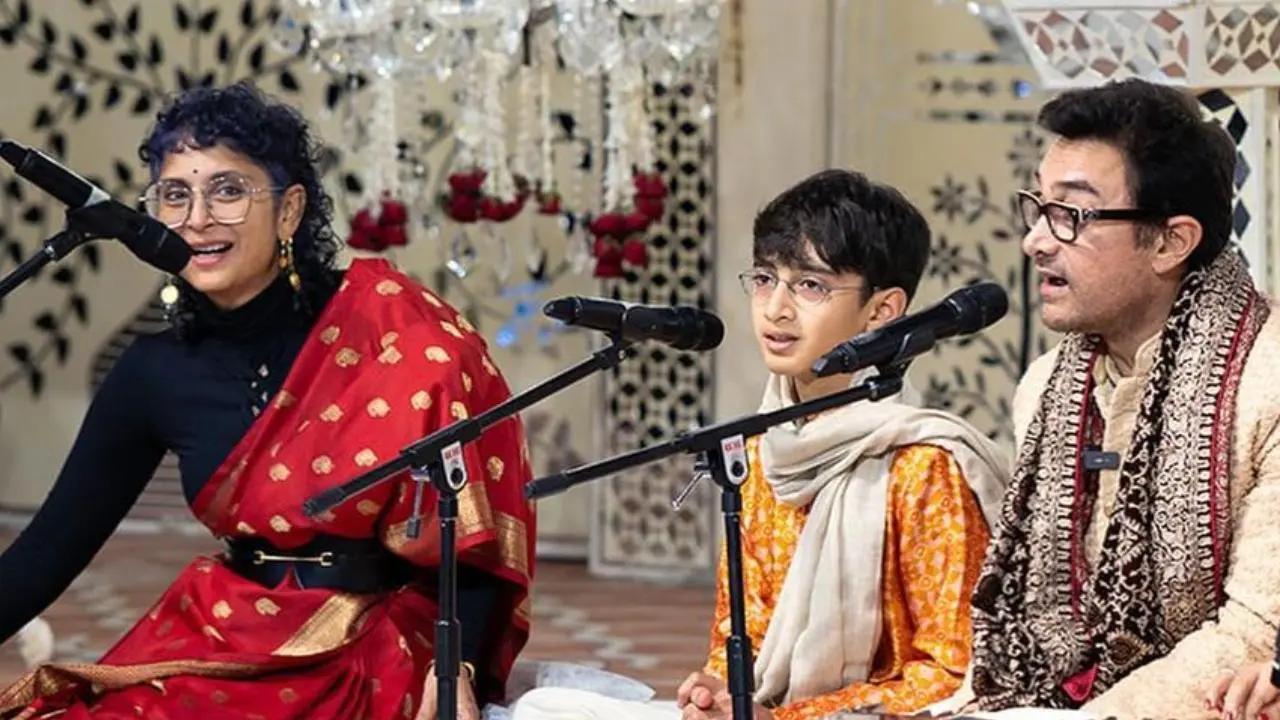
In a recent development that has garnered much attention, filmmaker Kiran Rao has opened up about her amicable divorce from Bollywood superstar Aamir Khan, shedding light on a rarely discussed side of their separation. The duo, who parted ways in 2021 after 15 years of marriage, have maintained a spirit of positivity and respect that continues to inspire many.
While speaking to journalist Faye D’Souza, Kiran Rao shared an unconventional yet heartening perspective on her split from the actor. “It’s been a very happy divorce,” she candidly stated. Rao elaborated by explaining how her happiness stemmed from a conscious decision that aligned with her evolving needs and desires. “I feel relationships need to be redefined from time to time because we change as human beings as we grow. We need different things, and this divorce is what I felt would make me happy and has made me very happy, honestly,” she added.
Rao, who has been riding high on the success of her latest directorial venture ‘Laapataa Ladies’, provided glimpses into her journey of self-discovery post-divorce. Reflecting on her life before and after Aamir Khan, she remarked, “Before Aamir, I was single for a very long time. I really enjoyed my independence. I was lonely, but now I have Azad (her son), so I tend not to be lonely.”
She also tackled a common concern associated with divorce—loneliness. Addressing this, she pointed out, “I think loneliness is the only thing that most people are a bit worried about when they get divorced or lose a partner. I haven’t felt lonely at all. In fact, I am supported by both families, his family and mine. So, actually, it has been only good stuff. It’s been a very happy divorce.”
Despite the positive outlook, Rao did not shy away from acknowledging the challenges involved in ending a marriage. “Though it is a happy divorce, it was not easy for Aamir and me to end our marriage. We needed to be secure in the fact that we are not going anywhere; we are there for each other for the long term. It’s just that we don’t have to be married,” she noted.
Rao elaborated on the deep bond she shares with Aamir Khan, a bond that transcends conventional marital status.
. “There’s a lot of love, a lot of respect, a lot of shared history, shared laughs, shared ideology—there are lots of things that we look for in each other. So, I didn’t want to lose that. When I was secure enough to say, ‘Yeah, we don’t need the paper to say that we are married but we know what we mean to each other’… This is a partnership which will stand the test of time despite the divorce,” she emphasized.
A love story that began on the sets of ‘Lagaan’, Kiran Rao and Aamir Khan’s journey has intrigued fans and followers alike. The couple tied the knot on December 28, 2005, and in 2011, they welcomed their son Azad through surrogacy. Their decision to part ways in 2021 was met with a mixture of shock and support from both their personal circles and the public.
Notably, their ability to co-parent and remain friends post-divorce stands out as a significant achievement. Rao underscored this by stating, “We needed to be sure that we are there for each other long-term. It’s just that we don’t need a marriage certificate to validate that.”
When asked about the dynamics of their current relationship, Rao was quick to clarify that despite the changes in their marital status, their fundamental connection remains intact. “We share so much beyond just the title of being married. Our relationship now is more about mutual respect and understanding. We don’t need a formal recognition to validate what both of us mean to each other,” she said.
Rao’s revelations come at a time when conversations around divorce are often mired in negativity and stigma. By sharing her narrative, she offers an alternative viewpoint—one where separation can be a step towards personal happiness without compromising on love and mutual respect.
Kiran Rao continues to focus on her career and her role as a mother, while Aamir Khan also remains dedicated to his work and their son Azad. Their story serves as an enriching example of how relationships can be redefined, adapted, and cherished in different forms, reinforcing the idea that happiness and fulfillment do not necessarily conform to traditional norms.
In conclusion, Kiran Rao and Aamir Khan’s narrative brings forth a transformative perspective on divorce, one that celebrates personal growth, mutual respect, and lasting friendship. Their journey exemplifies how love and respect can endure, even sans formal ties, creating a path for more nuanced conversations about relationships and personal well-being.












